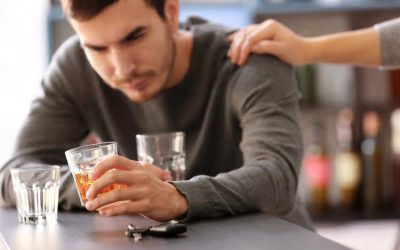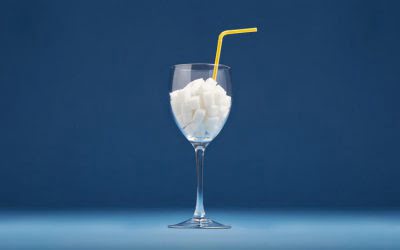Factors such as alcohol metabolism, gender, and weight can all play a role in how quickly a person sobers up. While there is no guaranteed way to sober up quickly, staying hydrated, getting rest, and avoiding further alcohol consumption can all help. For anyone with a family history of alcohol use disorder, there is a higher risk of also developing the condition. For those people, it may be wise to avoid consuming alcohol altogether. You can’t really predict how long you’ll stay drunk, and try as you might to stop being drunk faster, there’s nothing you can do to lower your BAC once you’ve started drinking.
Causes of auto brewery syndrome
At a BAC of 0.05 or less, the individual is unlikely to appear intoxicated. Depending on the person, judgment and reaction https://ambong.devspaces.xyz/sober-living/complex-trauma-and-alcohol-use-disorder-what-s-the/ time may be mildly impaired. One drink will typically result in a BAC beneath this threshold for both men and women. And if that cycle is wearing you down, not dramatically or destructively, but quietly, in the background, then it may be time to shift the question from “How long will this take? If the peer pressure to drink is too much, it’s time to shift to an alternative.
Alcohol is a simple molecule that is rapidly absorbed into the bloodstream. So if you drink a few shorts—spirits are generally 40% ABV alcohol by volume—quickly, you’ll get a rapid increase in your blood alcohol level. Over time, alcohol addiction causes a shift in the brain’s motivation to drink.
Want more resources on drinking?
- Schedule a free confidential consultation and talk to one of our admissions experts who understands.
- This part of recovery is pretty common, even if people don’t recognize it as such or talk about it much.
- Alcohol roughly leaves the body at an average rate of 0.015 grams per 100 milliliters per hour.
- So, while everyone’s alcohol metabolism rate is a little different, chances are the “one drink an hour” rule doesn’t work.
- In auto-brewery syndrome, your body automatically ‘brews’ carbohydrates into ethanol or alcohol.
Previous research shows people with auto-brewery syndrome tend to have poorer overall health. Other research finds those with the syndrome are more likely to drink more water; drink less tea, coffee, and dairy; and eat less candy. They’re more likely to have poor bowel movement quality, own pets, have more non-food allergies, and more food sensitivities. If you have an underlying health condition, that can contribute to developing auto-brewery syndrome. People with short bowel syndrome, pseudoobstruction, or small intestinal bacterial overgrowth (SIBO) may be more likely to develop the syndrome.
When to Seek Medical Attention
It may be harder to get a diagnosis in those cases because the person can pinpoint having had an alcoholic drink, which may cause clinicians to rule it out. Auto-brewery syndrome occurs when microorganisms in your gut break down carbohydrates into ethanol. The syndrome has been described in medical research for more than 50 years, but researchers are still learning more about it. Many say the condition is widely underdiagnosed, meaning that more what does being drunk feel like people have it, yet do not know. It can be very serious, especially if you have symptoms and get behind the wheel of a vehicle.

Keep in mind that relapses are a normal, common part of recovery. These behaviors and emotional concerns can strain your relationships and interactions with others, especially if alcohol use has already had a negative impact on your relationships. Symptoms can also seem to resemble a late withdrawal, as some treatment professionals have pointed out. Certain Sober living house medications can have side effects mimicking intoxication. Anti-seizure medications, antidepressants, sedatives, and tranquilizers can cause dizziness. Blood pressure medications, if they lower blood pressure excessively, may also induce faintness or dizziness.
How Nirvana Recovery Can Help You Feel Truly Clear
Moreover, this same relationship is observed in response to placebo. So, you pee more often than normal when you drink alcohol, but it has nothing to do with breaking the seal. Likewise, food might help soak up a little bit of that alcohol in your system, but you have to have it in your system first. So, the next time you find yourself trying to sober up, skip the coffee and just wait it out. By Buddy TBuddy T is a writer and founding member of the Online Al-Anon Outreach Committee with decades of experience writing about alcoholism. Because he is a member of a support group that stresses the importance of anonymity at the public level, he does not use his photograph or his real name on this website.
When drunk, you can numb difficult emotions and avoid confronting mental health struggles. Alcoholics Anonymous and other popular alcohol support groups often emphasize how alcohol can cloud judgment, potentially ruin relationships, and might derail mental and physical health. Yet, breaking free from this hold can feel overwhelming, especially for those who experience withdrawal symptoms that make quitting feel nearly impossible. If you’re a recovering alcoholic, the first step to recovery is realizing the extent of the problem. Drunk people exhibit impaired mental and behavioral functions influenced by elevated blood alcohol levels. Being sober is a condition where an individual hasn’t consumed alcohol or any other intoxicating substance.
- While certain techniques may help a person feel more awake, they will not eliminate alcohol from the blood more quickly and so will not lower the BAC level.
- Some people take probiotics regularly to manage their gut health and prevent a relapse.
- Many people find themselves caught between two worlds—one dominated by alcohol and the other full of possibilities that come with sobriety.
- That doesn’t mean you can’t have a couple of drinks and still be able to drive, but it does mean that you’ll want to reconsider your own timing.
Myth Two: Drinking Kills Brain Cells
This is especially true for those who struggle with depression. Nature has been proven to increase levels of dopamine in our brains. It is uncertain whether one causes the other, however, both can contribute to the origination, and maintenance of the other disorder. For example, depression can cause feelings of loneliness or isolation.

Residual toxins from alcohol can drain your body, leading to fatigue. Here’s how a well-rounded lifestyle can help rejuvenate your system. Here’s a fabulous talk about addiction, recovery, and managing emotions that I hope you’ll enjoy. If you’re on the pink cloud right now, enjoy the good vibes, but don’t trust them too much. You aren’t fixed; chances are if you go back and have a drink, it will lead you down a path you don’t want to be on. Seeing a therapist or counselor regularly can help you confront these emotions in a healthy way when you’re ready to do so.
So whenever you feel the pangs of sobriety fatigue, remember to be kind to yourself. It’s not a matter of willpower or personality, but biological changes that are outside of your control. After finally achieving recovery, you may find that you’re dealing with a sense of chronic fatigue. This tiredness can last for weeks or even months and could lead to feeling discouraged about your own recovery. If you’re experiencing chronic fatigue or if your symptoms worsen over time, it’s a clear signal to consult a medical professional. Also, fatigue might be a side effect of medication used during detoxification.
